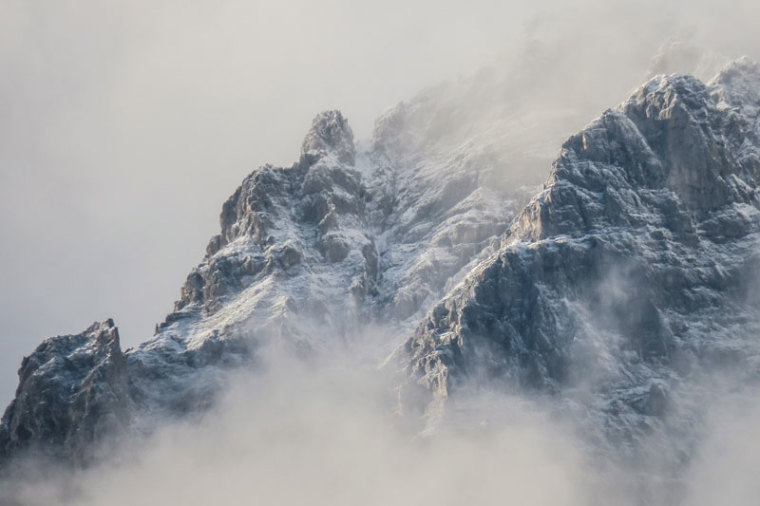
“Eternal order is prescribed by the sacred engine,” says Mason in Snowpiercer. She continues, domineering over the impoverished tail-section passengers: everything orderly, in its proper place, working as it should worships the engine — passengers, water, heat. To disobey is to cross the ‘sacred’ line; it is as ridiculous as a shoe trying to be a hat. Everyone must stay in their place.
Snowpiercer is a 2013 science fiction film based on Le Transperceneige, a French graphic novel by Jacques Lob, Benjamin Legrand, and Jean-Marc Rochette. Directed by Bong Joon-ho, it is dark, gritty and violent. (Call me a child, but I had to shut my eyes and ears at times.) Mason is the mouthpiece of Wilford, director and demi-god of a luxury, self-contained, perpetually moving train which carries the last humans on the earth around the world in a year.
Outside nearly everything has perished beneath a misguided attempt to battle global warming; ice is king, the earth is dead. Inside a rigid hierarchy is enforced. Tail-sectioners live deprived, cheek to jowl, eating nothing but protein blocks. Those at the head are educated, party, go to the hair salon, and eat sushi twice a year. Shoes must be shoes and hats must be hats. But, of course, there is always at least one shoe too outraged by injustice to stay on the foot. Curtis is that shoe. The film follows the journey of his rebellion.
Movie for thought
I like a movie that makes me think — often this is my main motivation for watching something — cultural products reveal the understandings and attitudes of our time — Snowpiercer didn’t disappoint.
Although set in a dystopian future with extremes more obvious in its small train-bound world, Snowpiercer has a quite comfortable representation of life. The go-getters go get, winners win by chance as much as skill, stuff goes wrong, things blow up, leaders manipulate their followers, and paths twist in unexpected ways. It even has all the nice injustices we have become used to everyday in its microcosm of carriages: poverty, luxury, stereotyping, privilege, elitism, authoritarian brutality, drug abuse.
The film depicts a closed world familiar to those of us living in the reductionist, materialist West. There is no help coming from outside. Humanity is self-absorbed; hope is found only in man and can be realised only as far as he is able to make it happen. It shows a nuanced and complicated mankind bent towards evil. Few are depicted without fault (though some faults may seem justifiable in context); even the heroes are arguably bad guys.
Our culture loves these ideas. Rooting out injustice (especially political) and overcoming are popular themes. We relate to the underdog. We want to believe we can fix the evil we do.
The problem is that, while true to cultural thinking and conclusions drawn from a Darwinian worldview, life in Snowpiercer shows an incomplete picture. It discounts the greatest reality we can know. It removes from its speculation about the future the single most important factor. God is real.
The really real
I liked the way Snowpiercer compelled me to think about humanity and our place in the world, how we relate to one another and our environment, but I wouldn’t suggest looking to it for truth about reality or where we are going as a race. It is fiction after all.
We have a more reliable source. The Bible — which teaches us that help has come from outside — which turns Mason’s shoe-hat philosophy upside down. “...[M]any who are first will be last; and the last, first.” (Matthew chapter 19, verse 30, NASB.)
If our world really were a world like one in the film, relying on the order we bring and maintain and pay for with every cost (even our lives), it would be all over too soon. It would be shallow and dull. It would be missing the richness of the grace outside us that sustains everything.
We would always be shoes, small and insignificant in the scheme of things, bowing down to the Masons of the world, susceptible to wearing down in the grind of life, stuck in our ways at the bottom.
But, this is a world ordered, maintained and paid for by Jesus Christ. Jesus blew open the door to outside when he came and walked the earth, dying and rising again that our sins might be forgiven. He did it at cost only to Himself, not to hundreds of others. He came to make shoes hats by turning us wayward sinners into kings and queens, children of God, when we trust him.
Author’s disclaimer
It may seem pretentious that these are some of the conclusions I came to after watching Snowpiercer, but thinking in such a way is quite normal for me. I write because I am convinced that we must think more. In today’s information landscape, we need to take care to consider the messages we are imbibing. Our access to media, films, music, and ideas, which is ubiquitous and easy to come by now, carries with it the risk that we will take on attitudes and behaviours that are inconsistent and disrespectful towards the life we have been given and are called to live well.

Irenie How was rescued from darkness by the grace of God when she was running away; God showed her He is the Lord and she wants you to know this too. She is trying to read, draw, love, move forward, and live every day. Check out some of her work on Instagram (@irenie.anne or @anaplangent).
Irenie How’s previous articles may be viewed at www.pressserviceinternational.org/irenie-how.html